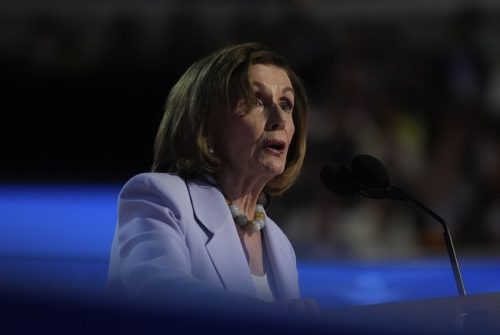I’ll explain why a Democratic congressman’s on-air accusation against Donald Trump over the Jeffrey Epstein files landed flat, why Joe Scarborough’s rebuke mattered, and whether a lawsuit is a realistic response; I’ll note what victims have actually said, the lack of evidence, and the broader political play at work; I’ll describe the legal and reputational stakes for both sides, and outline what this episode reveals about the opposition’s tactics.
When Joe Scarborough, who is not a fan of Donald Trump, must step in, you know it isn’t good. That moment underlines how weak the latest attacks look when aired on prime television. Democrats have been circling the Jeffrey Epstein files like sharks, hoping to turn whatever they can find into a weapon against the president.
The clean, unvarnished fact is this: victims who have come forward and been reported on have not placed Donald Trump at the center of the specific illicit acts tied to Epstein. That matters a great deal in both public opinion and any court of law. If this is the best their party can do, it reveals a serious messaging problem at the highest levels of opposition politics.
BREAKING – Democrat Rep. Seth Moulton just defamed President Trump live on MSNBC, claiming he “took advantage of young girls with Epstein,” prompting a visibly panicked Joe Scarborough to fact-check him repeatedly, insisting there is no evidence supporting Moulton’s claims. pic.twitter.com/toVDKGmx6I
— Right Angle News Network (@Rightanglenews) October 31, 2025
Rep. Seth Moulton (D-MA) went on MSNBC and accused the president of engaging in illegal sexual activity with minors, but presented no new evidence to back the charge. Instead he leaned on what he called “common sense” to justify his claim. Joe Scarborough proceeded to give a line-by-line critique of Moulton’s remarks, pointing out the thinness of the argument and warning the congressman about making unproven allegations on national TV.
The reaction from the left has been predictable: shout the accusation loudly and hope volume substitutes for proof. They want to get Trump, due process, evidence, and facts be damned. That approach mirrors the worst moments of the Russiagate era, when innuendo was treated as near-proof and the public was asked to accept guilt based on suspicion alone.
To be clear, the Epstein files themselves are real and deeply troubling; Jeffrey Epstein was a criminal who harmed many people and deserved every measure of exposure and punishment. But acknowledging Epstein’s crimes does not mean casting guilt by association onto anyone without solid proof. No reputable legal standard supports convicting someone in the court of public opinion on the basis of rumor and gossip.
So should Trump sue Rep. Moulton or the networks that ran the accusation? From a Republican perspective the answer is straightforward: consider it. Public figures have a higher bar to meet, but deliberate, reckless falsehoods can cross into defamation if they are presented as fact and cause demonstrable harm. A well-framed lawsuit would force depositions, document discovery, and sworn testimony—exactly the kind of scrutiny that can expose baseless claims.
Litigation also serves a political purpose. It imposes costs on those who make reckless allegations and deters future hit-and-run smears. At the same time, suing is not a magic bullet; it risks giving cover to the original accusation by keeping the story in headlines and on social feeds longer. Any legal strategy should weigh the potential reputational upside against the chance of amplifying a story that otherwise would die on its lack of evidence.
Beyond the legal calculus there are political consequences for the Democratic Party when its members resort to unchecked accusations. Voters notice when claims are made without foundation and when prominent critics—especially those not aligned with the target—call them out. Repeated reliance on innuendo erodes credibility and hands the opponent the moral high ground: defend rule of law, evidence, and fair play.
This episode is another reminder that politics is often less about revelations than readiness. The left has invested time and energy in trying to tie everything to a single narrative about the president, but without convincing proof those efforts look like desperation. Expect more attempts like this, and expect Republicans to keep pressing for facts, due process, and accountability for anyone who crosses the line into deliberate misinformation.






